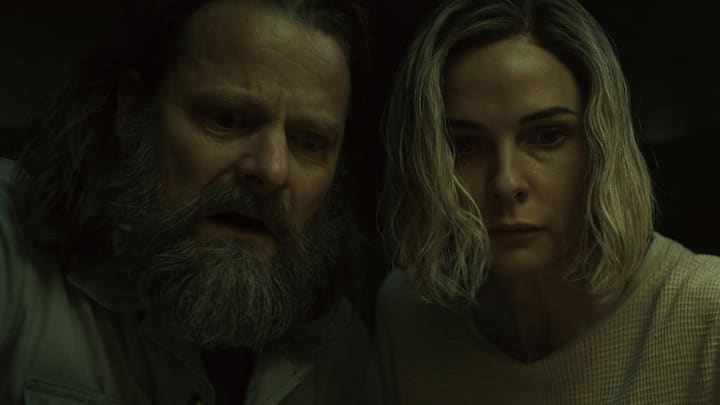The Silo season 2 finale, titled "Into The Fire," strives to redeem and justify season 2's slow pacing. Finally, the two biggest plot threads actually come together as the audience is privy to Mechanical's rebellion gaining real traction and Juliette's reveal to her Silo that she is still alive, but that the outside world is not safe to visit.
Although Juliette does not get to directly interact with anyone from her home, with the exception of Bernard in one of the episode's biggest cliffhangers, the moment is enough to satisfy the Silo residents with the knowledge that the woman they had been cheering on was indeed alive. Still, "Into The Fire" does not erase all of the problems that season 2 faced during its run.
Between the extremely dark lighting that made some scenes nearly impossible to see and the struggle to move the plot forward, the conclusion of season 2 is somewhat of a relief, even if it does have its moments of tragedy.
Juliette's father sacrificing himself for the rebellion before he knows for certain she is alive is devastating. But, "Into The Fire" still does not help other aspects of its stories. While Juliette's relationship with Jimmy has been the strongest part of their isolated arc, the revelation that other people existed within that Silo ultimately led to nothing. The other survivors, while adding some stakes toward the end of the season, really do not add anything to the storyline in the grand scheme of things, especially with how irrelevant they are in the season finale. If anything, they suggest that Jimmy will not be alone anymore once Juliette leaves.
But, considering Jimmy had been alone for the majority of his time in the Silo and was not necessarily complaining about it, the addition of a few new people does not add much to his overall arc, especially when Silo was never interested in explaining how the later additions survived without access to Jimmy's food supply.
Given the events of the main Silo, audiences are aware of the Farm and other potential food sources. But, the group mentions eating rats rather than other sorts of goods. The frustrating part is that it ultimately does not even matter, as Juliette's decision to leave does not impact any of them at all, except for Hope, who had previously only gone by "Eater," potentially not being looked at as a problem to feed anymore.
Besides, with the cliffhanger ending of Juliette and Bernard being trapped in a fire, audiences are likely more interested in what will happen to them, two series regulars for the show's entirety, than a few supporting characters that were only introduced within the last few episodes. This is only one of the ways that Silo has a supporting character problem; having many of them exist in the background but without allowing many of them to step up to feel relevant in the entire goings-on of the show.
The rebellion plot line in the season finale is handled slightly better, as is the recognition of the culture and knowledge in Mechanical that allows the members to communicate through gestures rather than words. Doing so gives them an advantage over Bernard, and the result is a potentially devastating destruction of the Silo that takes out a few floors worth of stairs. But, Paul Billings, whose role has been on and off effective, is once again pushed to the side as he tries and fails to play mediator between the angry rebels and Bernard. Lukas' massive revelation is only slightly undercut when it is revealed to be something that Juliette and Jimmy had already explained.
The Safeguard procedure is extreme. The decision to kill everyone to prevent chaos means that someone somewhere can pull the plug at any moment by allowing poison from the outside to be let in. It does not explain who is responsible for it, and given that Lukas had to explain it to Bernard, it certainly asks questions about a potential other secret form of government or role existing within the Silo. Such things could be exciting to learn about in a prequel season, which it appears season 3 will be focused on, as "Into The Fire" already introduces that concept in the final minutes of the finale.
While season 2 is, unfortunately, a mostly difficult season to get through, season 3, if split down the middle between the main timeline and the past, could provide significant answers about the events leading up to creating the Silos and the truth about what really happened that led to history being destroyed. Given the renewals for seasons 3 and 4, this gives the writing team more assurance of knowledge regarding what they can write toward to create a series of storylines that best benefit the show and give the characters a strong conclusion. After finally moving forward on the rebellion, someone deserves answers about the truth that they are fighting so hard to learn.
